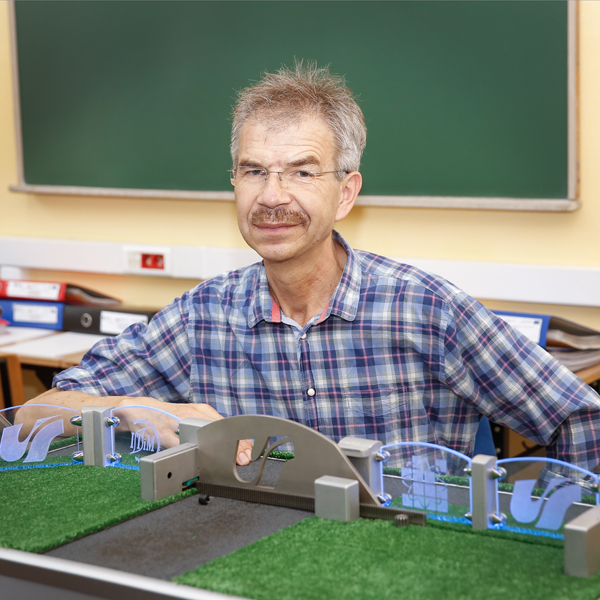Our journeys | Our stories
LUCJAN KOZIELSKI, PhD, DSc Eng.
Erasmus+ | Czech Republic | Liberec
Fot. private archive
I believe that participation in the Erasmus programme should be the responsibility of every student – you can learn a lot, gain a different view of the world and broaden your horizons.
I enjoy becoming a local wherever I am, seeing life through the eyes of the people who live there. It lets me understand what they feel. Thus, the Erasmus+ programme is closely related to PERSONAL DEVELOPMENT, because such a trip shapes the character and changes the perspective on life, broadens horizons, and completely changes the point of view. It is also an opportunity to do and see things that you’ve never dreamed of. This is called gaining a distance to life. The distance we have to cover when traveling makes us move not only physically, but also spiritually and mentally. This, in turn, allows us to look at life from a different perspective, without emotions. Even to the point where we can see that we can actually take a different path than the one that seems the most sensible.
The first step is the most difficult – we have to choose the direction. East, West, North, South. By ourselves or with friends. And then it is only getting more and more interesting! With each step, we distance ourselves from problems, and all this is due to going beyond our comfort zone – during Erasmus, after all, we are abroad, away from family and friends, in a completely new country. This makes us adapt, become a more open, mature and independent person. We prove ourselves in new situations.
My adventure with Erasmus began a few years ago. Now it was my fifth trip and it was different from the previous ones. This time it mostly consisted of classes with students, during a pandemic.
In the spring of 2021, despite the restrictions, I decided to go to the Technical University of Liberec as part of exchange for academic teachers. As part of this exchange, I conducted classes with students in the field of Nanotechnology. I offered students a course in Materials Science and Engineering in Poland. The students were listening very actively when I was describing the system of studying in our country. They compared all the obtained information to the Czech system. During the discussion, we reflected on the values that education systems in both countries should implement. The students were active, interested and open to all knowledge – my classes weren’t obligatory, they took place just before the Christmas break, but the whole group was present and everyone declared their willingness to come to Chorzów as part of the Erasmus programme!!!
My stay was also devoted to establishing closer cooperation with the Czech university. Therefore, I had a few meetings with the coordinator for international cooperation who advised me on how to construct an offer for engineering students in the Czech Republic so that in the future I could establish cooperation in the field of student exchange.
I got to know the higher education system in the Czech Republic. Students there have several subjects per semester (around 5-6) and implement them as modules. First, subjects from one module are implemented, followed by an exam or other form of credit, and then the next module is introduced. Each module is in the responsibility of one lecturer – the module supervisor, who, depending on the students’ needs and their knowledge gaps, invites other lecturers, specialists in specific fields, to conduct a certain number of hours within the modules. As in Poland, 30 ECTS points are obtained for the entire semester cycle of the courses.
After the classes with Czech students and learning about this very different education system, I got the impression that thanks to the adopted assumptions, Czech students take their studies very seriously, prepare for classes and actively participate in them. They make full use of every second of the classes. What was new to me was the way of conducting the classes – active, allowing discussion and provoking reflection by asking various questions.
If I had to answer the question whether it is worth going on an exchange for academic teachers as part of the Erasmus+ programme, I will definitely say yes. Basically, there is nothing but benefits – starting from the possibility of establishing long-term international contacts and the chance for scientific cooperation through developing one’s linguistic and methodological competences, to the satisfaction resulting from conquering “new lands”. It is a very enriching experience – both personally and professionally.






